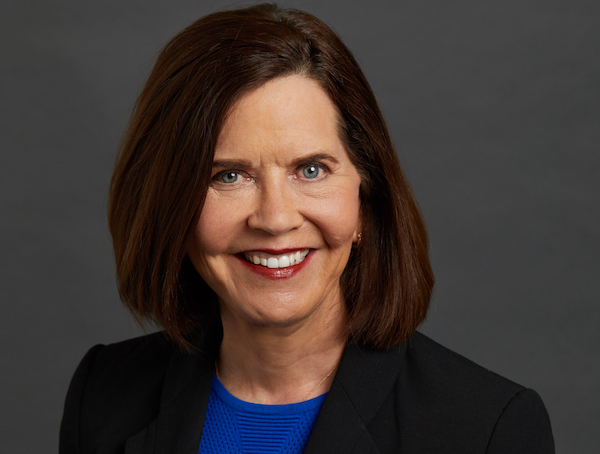Cardinal Health MarketSM
The legacy Cardinal.com Medical Ordering site has been replaced with Cardinal Health MarketSM, a new product experience designed with you in mind.

By Heidi Hunter, President, Cardinal Health Specialty Solutions at Cardinal Health
This week marks Global Biosimilars Week – a time when healthcare stakeholders around the world are raising awareness for the role that biosimilars can play in lowering costs of healthcare. More importantly, it’s a great time to talk about how biosimilars can make healthcare more accessible for all patients.
Having spent several years of my career leading the biosimilars business for a global pharmaceutical company, I’ve had the opportunity to experience firsthand the impact biosimilars had in Europe, where the entry of biosimilars significantly increased competition and drove price decreases for biologic medicines. I’ve also seen that biosimilars, when used in the right way, can free up dollars across the healthcare system for other investments, which is critical to drive innovation and the next generation of advanced therapies.
In the U.S., the biosimilars story has looked different. Although there are more than 30 products approved and 20 on the market, adoption has varied across therapeutic areas, and in many cases has been slower than expected. While some oncology biosimilars have experienced rapid uptake, in rheumatology, the adoption of the infliximab biosimilars has been far slower.
While the cautious response to biosimilars in the U.S. isn’t surprising given the complexity of our health payer system, it is nevertheless frustrating to many healthcare stakeholders. After all, biosimilars were developed with the intention of increasing access and lowering costs of care for patients with complex and severe conditions – something that is badly needed in the U.S. where at least one in every four Americans struggles to afford their medications.
Although early U.S. biosimilar experiences were not as robust as initially hoped, we may be on the verge of a change.
From a policy perspective, there is increased focus on the role biosimilars could play in making healthcare more affordable. President Biden has been a vocal advocate for biosimilars, recently signing an Executive Order directing the FDA to make the biosimilar approval process more transparent, to clarify the standards for interchangeability, and to develop biosimilar educational materials to help providers, patients, and caregivers better understand biosimilars. The Biden administration also called for market changes that would promote biosimilars in a recent report outlining the administration’s recommendations on lowering the cost of prescription drugs.
New biosimilar approvals are also changing the landscape. In July, the FDA approved the first insulin biosimilar, which is expected to come to market before the end of the year. This approval is a landmark decision not only because it has the potential to lower the cost of care for diabetes patients across the U.S., but also because it is the first biosimilar with an “interchangeable” designation and the first biosimilar that will be available at the retail pharmacy.
The interchangeability designation, which is unique to the U.S., gives pharmacists the ability to substitute a biosimilar in place of a reference product without the approval of the prescriber, theoretically enabling pharmacists to drive patients to the lowest cost option. With more than 7 million U.S. diabetes patients taking insulin and diabetes patients spending an average of $2,500 a year on their medications, the potential impact on diabetes care is immense.
That said, the economics surrounding biosimilars in the U.S. are not simple. Over the past six years, the utilization management strategies employed by payers—including formulary designs—have played a role in driving product choices and biosimilar utilization. At times, these strategies have created challenges to biosimilar adoption, resulting in higher out-of-pocket costs for patients in some cases, as well as reimbursement hurdles and operational burdens for providers who have been forced to carry multiple products in their inventory.
As market dynamics shift, it is unclear how payer strategies may evolve. While contracts and rebates for biosimilars and reference products will remain complex, managed care professionals are well positioned to aid in the adoption of biosimilars, to promote education for providers and patients, and to encourage safe and appropriate biosimilar use.
Even if the payer response to biosimilars remains tepid, the availability of biosimilars is likely to put downward pressure on prices over time. Through increased competition, biosimilars have already had a significant impact on bending the cost curve with oncology spending growth dropping below 10% for the first time in seven years; and in 2020 alone, biosimilars saved the U.S. healthcare system $7.9 billion.
Over the next few years, a growing number of leading biologic therapies will face competition from biosimilars, most notably the immunology therapy Humira (adalimumab), which is currently the top-selling drug based on annual revenue. Humira biosimilars have already been FDA approved, but are not expected to enter the market until 2023 due to patent settlements.
While the U.S. market for biosimilars is inherently more challenging than Europe, the opportunity for biosimilars to enable more affordable and equitable care for patients is still strong. And as FDA approvals and policy changes continue, the potential for broader U.S. biosimilar adoption—which will drive broader patient access and more funding for innovation—is finally within reach.
As President of Cardinal Health Specialty Solutions, Heidi Hunter leads the specialty healthcare business that helps healthcare providers and pharmaceutical companies optimize business success and drive improved patient care. She is an accomplished global healthcare leader with deep experience in innovation, development and commercialization of specialty pharmaceuticals.